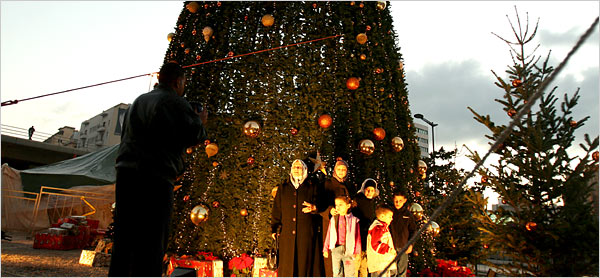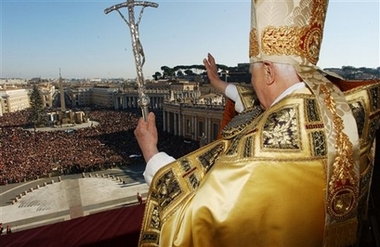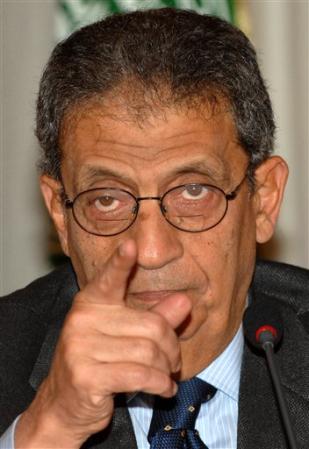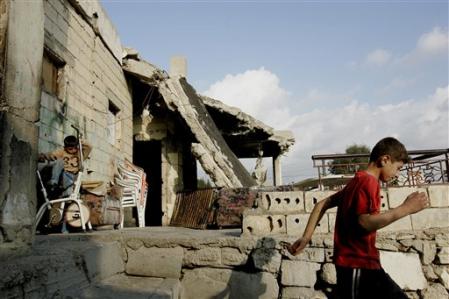 BAGHDAD, Dec. 30 (Xinhua) — Iraq’s ousted president Saddam Hussein was defiant and calm, refusing to have a hood pulled over his head while he was led the gallows shortly after 6 a.m. (0300GMT) on Saturday. Iraqi state-run television, al-Iraqia, released videotape of Saddam final moments before execution. The video showed Saddam, wearing a white shirt without a tie and a dark overcoat, being led to the gallows with a calm and defiant face and was chatting with his two masked hangmen who placed the noose around his neck. The Iraqi television later showed footage of Saddam in a white shroud lying with his neck twisted to one side at an awkward angle, with what appeared to be blood or a bruise on his left cheek. Before the rope was put around his neck, Saddam shouted: "God is the greatest. Long live the nation and Palestine is Arab," Sami al-Askari, the political adviser to Prime Minister Nuri al-Maliki, told the Iraqi channel. The execution took place at an Iraqi army base in Kadhimiya, once was Saddam’s main military intelligence headquarters.
BAGHDAD, Dec. 30 (Xinhua) — Iraq’s ousted president Saddam Hussein was defiant and calm, refusing to have a hood pulled over his head while he was led the gallows shortly after 6 a.m. (0300GMT) on Saturday. Iraqi state-run television, al-Iraqia, released videotape of Saddam final moments before execution. The video showed Saddam, wearing a white shirt without a tie and a dark overcoat, being led to the gallows with a calm and defiant face and was chatting with his two masked hangmen who placed the noose around his neck. The Iraqi television later showed footage of Saddam in a white shroud lying with his neck twisted to one side at an awkward angle, with what appeared to be blood or a bruise on his left cheek. Before the rope was put around his neck, Saddam shouted: "God is the greatest. Long live the nation and Palestine is Arab," Sami al-Askari, the political adviser to Prime Minister Nuri al-Maliki, told the Iraqi channel. The execution took place at an Iraqi army base in Kadhimiya, once was Saddam’s main military intelligence headquarters.
Vatican City, Vatican (AHN) – The Vatican on Saturday strongly condemned the execution of ousted Iraqi President Saddam Hussein and termed it ‘tragic’.In a statement issued by the Vatican press office, a Vatican official said: "An execution is always tragic news, reason for sadness, even in the case of a person who is guilty of grave crimes."Saying that the execution could trigger a wave of revenge, the official said, "There is a risk of setting off a wave of revenge and sowing new seeds of violence." The killing of the guilty was not the way to re-establish justice and reunite society, the spokesman said.
 By Maroun Khoury, Daily Star, BKIRKI: Maronite Patriarch Nasrallah Butros Sfeir said Thursday that the protests currently taking place in Lebanon can very easily engender chaos. Speaking during a meeting with a delegation of residents from the Bekaa regions of Baalbek and Deir al-Ahmar, Sfeir said that "protests like these are unfortunately allowed in Lebanon and if we look around us, we can see none of the countries allow their citizens to do what the Lebanese are doing these days."
By Maroun Khoury, Daily Star, BKIRKI: Maronite Patriarch Nasrallah Butros Sfeir said Thursday that the protests currently taking place in Lebanon can very easily engender chaos. Speaking during a meeting with a delegation of residents from the Bekaa regions of Baalbek and Deir al-Ahmar, Sfeir said that "protests like these are unfortunately allowed in Lebanon and if we look around us, we can see none of the countries allow their citizens to do what the Lebanese are doing these days."  The New York Times, By HASSAN M. FATTAH, BEIRUT, Lebanon, Dec. 28
The New York Times, By HASSAN M. FATTAH, BEIRUT, Lebanon, Dec. 28  By MARIA SANMINIATELLI, Associated Press Writer, VATICAN CITY – Pope Benedict XVI marked Christmas with a call for an end to violence around the world and urged people everywhere not to lose sight of their need for God in an age of technological marvels.
By MARIA SANMINIATELLI, Associated Press Writer, VATICAN CITY – Pope Benedict XVI marked Christmas with a call for an end to violence around the world and urged people everywhere not to lose sight of their need for God in an age of technological marvels.  BEIRUT, Lebanon: A Lebanese judge filed charges Wednesday against three journalists accused of breaking into the Beirut apartment of a witness in the assassination of former Premier Rafik Hariri, a judicial official said.Investigating Judge Elias Eid filed the charges against reporter Firas Hatoum, who works with the local New-TV station, as well as a cameraman and assistant, for breaking into and "tampering with criminal evidence" at the apartment of Mohammed Zuhair Siddiq, who is wanted in Lebanon in connection with the Feb. 2005 assassination of Hariri.
BEIRUT, Lebanon: A Lebanese judge filed charges Wednesday against three journalists accused of breaking into the Beirut apartment of a witness in the assassination of former Premier Rafik Hariri, a judicial official said.Investigating Judge Elias Eid filed the charges against reporter Firas Hatoum, who works with the local New-TV station, as well as a cameraman and assistant, for breaking into and "tampering with criminal evidence" at the apartment of Mohammed Zuhair Siddiq, who is wanted in Lebanon in connection with the Feb. 2005 assassination of Hariri. Arab League (AL) Secretary-General Amr Moussa Saturday said that the Arab mediation for Lebanese political crisis will continue and warned against more escalation, the Lebanese Broadcasting Corp. TV reported. "I can not say that the Arab initiative to solve the Lebanese crisis was a success nor I can say it was a failure, but I assure it will not stop," Moussa told reporters at a news conference held in Lebanese government offices.
Arab League (AL) Secretary-General Amr Moussa Saturday said that the Arab mediation for Lebanese political crisis will continue and warned against more escalation, the Lebanese Broadcasting Corp. TV reported. "I can not say that the Arab initiative to solve the Lebanese crisis was a success nor I can say it was a failure, but I assure it will not stop," Moussa told reporters at a news conference held in Lebanese government offices.  BEIRUT, 24 December (IRIN) – The lack of centralised, detailed development-related data in Lebanon has hampered the efficiency of emergency and rehabilitation efforts, humanitarian experts have said. "Information has been poorly coordinated, and although you can access, for instance, statistics on a given town or village via the municipality, there is no central mechanism to provide a global view of the different projects going on in Lebanon at any given time," said Rabih Bashour, coordinator for the relief and reconstruction committee at local NGO Al-Huda Society for Social Care.
BEIRUT, 24 December (IRIN) – The lack of centralised, detailed development-related data in Lebanon has hampered the efficiency of emergency and rehabilitation efforts, humanitarian experts have said. "Information has been poorly coordinated, and although you can access, for instance, statistics on a given town or village via the municipality, there is no central mechanism to provide a global view of the different projects going on in Lebanon at any given time," said Rabih Bashour, coordinator for the relief and reconstruction committee at local NGO Al-Huda Society for Social Care.  Daily Star , BEIRUT: "Dialogue is the most important thing for Lebanon today," boomed the voice of late MP Gebran Tueni, recorded more than a year ago and aired Sunday at a conference commemorating the slain journalist’s life and media freedoms in the Arab world. For a few brief moments Sunday, the MP and An-Nahar general manager came back to life in front of print journalists gathered to mark the first anniversary of his December 12, 2005 assassination in a car bombing.
Daily Star , BEIRUT: "Dialogue is the most important thing for Lebanon today," boomed the voice of late MP Gebran Tueni, recorded more than a year ago and aired Sunday at a conference commemorating the slain journalist’s life and media freedoms in the Arab world. For a few brief moments Sunday, the MP and An-Nahar general manager came back to life in front of print journalists gathered to mark the first anniversary of his December 12, 2005 assassination in a car bombing.  Al-Jazeerah, December 10, 2006 The Lebanese opposition composed of supporters of Hizbullah, Amal, Michel Awn, Franjiyeh, and Talal Arslan staged their largest protest ever. Lebanese army officers estimated it as hundreds of thousands filling Riyadh Al-Sulh Square, Martyrs Square, and nearby streets, bringing Beirut to a standstill.
Al-Jazeerah, December 10, 2006 The Lebanese opposition composed of supporters of Hizbullah, Amal, Michel Awn, Franjiyeh, and Talal Arslan staged their largest protest ever. Lebanese army officers estimated it as hundreds of thousands filling Riyadh Al-Sulh Square, Martyrs Square, and nearby streets, bringing Beirut to a standstill.